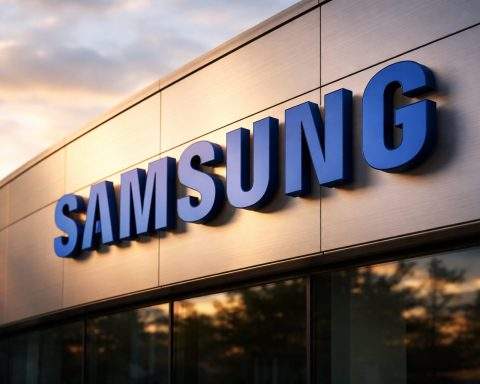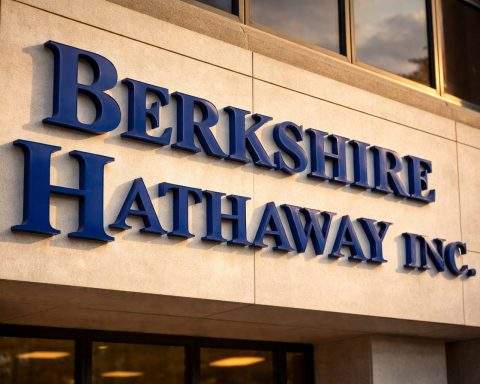- Investor Stake Increase: In Sept 2025, noted investor Mukul Mahavir Agrawal boosted his holding in semiconductor-services firm ASM Technologies Ltd from ~6.5% to ~10.9% of equity (an additional 762,500 shares) Tradebrains Business Standard. ASM’s stock has rallied dramatically (nearly 200% in 5 months) on strong Q1FY26 results, with revenue jumping 132% YoY and profit surging 433% Tradebrains 1 .
- Power PSU Share Battle: PSU giant NTPC offered to buy out co-promoters’ stakes in power-trading firm PTC India, but ran into resistance when fellow promoter NHPC refused to sell its ~4% holding Livemint Livemint. NHPC cited power trading “not its core business” and prefers steady dividends (PTC paid ₹11.7/share in FY25) to selling Livemint Livemint. PTC’s fundamentals are strong (Q1 net profit +61%, stock +10% YTD) despite past governance controversies 2 .
- Global Fund Buying Spree: On Sept 26, 2025, Morgan Stanley Asia (Singapore) quietly picked up a ~₹201.3 crore stake in ten companies via open-market block deals, buying shares (from Goldman Sachs) in firms like Bharat Electronics, Bharti Airtel, Kotak Mahindra, Hero MotoCorp and One97 (Paytm) Moneycontrol. These acquisitions spread across sectors (defence, telecom, fintech, autos, beverages), reflecting broad investor interest.
Mukul Agrawal’s Bet on ASM Technologies
ASM Technologies Ltd – an Indian engineering services and design-led manufacturing firm – has been a hot stock this year. The company reported Q1FY26 revenues of ₹123 crore (up 132% YoY) and net profit of ₹16 crore (up 433%) Tradebrains, beating expectations. Investors have taken note: Mukul Mahavir Agrawal, a well-known corporate investor, more than doubled his stake in ASM during recent quarters. He held 762,500 shares (6.48%) at end-June 2025, and by early September had amassed 1,525,000 shares (10.86%) Tradebrains. Business Standard reports that by early August he already held ~11.7% of ASM (1.52 million shares) Business Standard. Agrawal’s buying coincided with an almost 200% rally in the stock over five months Business Standard, suggesting strong confidence.
Industry analysts note that ASM is capitalizing on India’s burgeoning semiconductor ecosystem. The company has signed MoUs with Tamil Nadu and Karnataka state governments to invest ₹250 crore and ₹510 crore respectively in cutting-edge design and manufacturing facilities Tradebrains Tradebrains. ASM’s Managing Director Rabindra Srikantan explains that the “₹250 crore investment…will expand our design-led manufacturing capabilities in the ESDM [electronic systems design & manufacturing] sector…underscoring our commitment to innovation and global competitiveness” Dsij. (His comments were given at the MoU signing, emphasizing ASM’s focus on innovation.) The firm also has a JV to produce semiconductor equipment and is setting up India’s first semiconductor-focused equipment plant 3 .
These moves align with broader trends: India’s government has launched a $10 billion incentive scheme to attract chip-makers, drawing global giants like Micron and Tata to the country Tradebrains. Financial media profile reports tag ASM and peers as examples of India’s “semiconductor boom.” For example, a Financial Express analysis notes ASM’s expansion (RS. 5.1bn planned ESDM investment) and unique manufacturing capabilities Financialexpress. In short, ASM has transformed into an “ESDM multibagger stock” – as one financial journal put it – justifying Mukul Agrawal’s bullish bet Business Standard 4 .
PSU Shareholding Saga at PTC India
The long-running saga over promoter stakes in PTC India Ltd (a central power-trading joint venture) flared up again this month. State-run companies NTPC, NHPC, Power Grid Corp and Power Finance Corp each own ~4.05% of PTC Moneycontrol Livemint. NTPC had reportedly proposed to buy out the other PSU promoters’ shares to consolidate control. However, NHPC backed out: Mint reports that NHPC “is unwilling to sell its stake” despite NTPC’s offer, citing that PTC’s healthy dividends (₹11.7/shr in FY25) make retaining its ~4% stake more attractive Livemint. A Mint source notes, “NHPC plans to hold on to the shares in PTC India given that it has been giving good dividends” 5 .
In fact, NHPC had earlier scrapped its own buyout plan in June 2025. Mint had reported NHPC “shelved” a move to acquire its co-promoters’ stakes, deciding “power trading is not its core business” Livemint. Sources told Mint that NHPC will neither buy others’ shares nor sell its own 4% holding, effectively stalling NTPC’s latest bid Livemint. The dynamic now is that NTPC’s overtures have “hit a wall” at NHPC 6 .
Despite this tussle, PTC India’s fundamentals remain solid. The company posted a 61% jump in Q1 net profit (₹242.9 crore vs ₹150.8 crore a year ago) Livemint and its stock has risen about 10% year-to-date, outperforming the Sensex Livemint. In effect, the PSU partners may be more focused on PTC’s steady cash flow than on exits. Analysts note that after governance issues around its financing arm (SEBI investigations in 2022), promoters are finally evaluating their stakes. But with attractive dividends and growth, NHPC is comfortable staying invested Livemint Livemint. The outcome will influence whether PTC remains a multi-PSU venture or one (NTPC) emerges as sole owner.
Morgan Stanley’s Block-Deal Shopping Spree
In late September 2025, global investment bank Morgan Stanley made a round of strategic purchases in the Indian market. Through its Asia (Singapore) arm, it bought stakes in 10 different companies (totaling ~₹201.3 crore) via open-market block deals, all acquired from Goldman Sachs Moneycontrol. The targets were a diversified group of corporates: defence firm Bharat Electronics (BEL), telecom Bharti Airtel, lender Kotak Mahindra Bank, lender Axis Bank, fintech Paytm (One97 Communications), property developer Godrej Properties, and two large cap peers – Hero MotoCorp and Varun Beverages, among others Moneycontrol 7 .
Specifically, Moneycontrol reports that Morgan Stanley bought 3.94 lakh shares of BEL, 1.47 lakh of Airtel and 9.52 lakh of Eternal (pharma), as well as smaller parcels like 1.07 lakh of Paytm (worth ₹12.3 cr) and 28,602 of Hero MotoCorp Moneycontrol. These deals mirror a broader trend of foreign institutions rebalancing portfolios via block trades. In the same week, for example, ML Asset Mgmt offloaded stakes in Power Mech, and India-focused ETFs changed positions – indicating active fund flows Moneycontrol 8 .
Market experts view such bulk transactions as routine but noteworthy. The stocks involved cover key sectors (technology, finance, consumer). While Morgan Stanley’s moves don’t signal any management takeover, they do reflect confidence and liquidity in Indian equities. Indeed, the volumes and variety of shares it picked up – from Axis Bank at ₹1,166.60 to Shriram Finance (₹612.70) – highlight continuing foreign interest Moneycontrol Moneycontrol. Compared to smaller insider trades (like the ASM example above) or PSU stake swaps, this was a rapid-fire shopping spree by a global investor, underscoring that “buy side” of big deals remains active even as broader markets see volatility.
Sources: Latest market reports and filings from September 2025 Tradebrains Livemint Moneycontrol (includes Trade Brains, Mint, Moneycontrol and Business Standard coverage).






